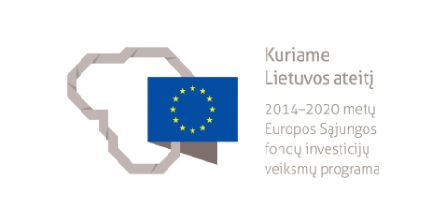1. The programme operator – the Institute of Lithuanian Literature and Folklore (hereinafter referred to as ILLF).
No. of staff positions for the execution of the programme – 12.92.
2. The aims of the programme:
2.1. conducting sustained work of editing fundamental and applied sources of classical Lithuanian folklore;
2.2. conducting theoretically new research on Baltic mythology, less explored genres of classical folklore and traditional folklore culture;
2.3. analysing current development of Lithuanian folklore relevant to the contemporary society, cultural peculiarities of its processes and its importance to the society’s ethnic identity.
3. Objectives:
3.1. Fundamental publications of Lithuanian folk songs, fairy tales, legends, proverbs and sayings will allow introducing these sources of Lithuanian culture into scholarly circulation and make them publicly available.
3.2. Theoretical research on Lithuanian folklore, mythology and traditional folk culture will provide for a complex analysis of the history of separate fields of this unique part of Lithuanian culture.
3.3. Analysis of contemporary folklore processes will allow assessing the changing role of folklore in contemporary society and tendencies of its development.
3.4. Organisation of international conferences and editing of an English publication will facilitate adequate presentation of Lithuanian folklore research in the international academic context.
4. Estimated results:
Planned publications:
Collection of Lithuanian Folk Songs, volume Work Songs (vol. 3) – 2017–2018;
Collection of Lithuanian Folk Songs, volume Songs of Calendar Rituals (vol. 2) – 2017–2021;
Lithuanian Proverbs and Sayings vol. 3 – 2017;
Lithuanian Proverbs and Sayings vol. 4 – 2018–2021;
Lithuanian Folk Narrative: Etiological Legends vol. 2 – 2017–2021;
Lithuanian Folk Narrative: Tales of Magic vol. 2 – 2017–2021;
Collection of Lithuanian Feast Songs – 2017–2018;
Collection of Talalinė Songs – 2018–2020;
Monograph on traditional Baltic cosmogony and eschatology (2 parts; senior research assistant dr. D. Razauskas),
2017–2021;
Monograph Lithuanian Riddles: Functioning, Style, Poetics (research assistant dr. A. Kensminienė), 2017–2019;
Monograph Dream as a Folk Narrative (working title; senior research assistant dr. V. Ivanauskaitė-Šeibutienė), 2017–2021;
Monograph Child Rearing in Agricultural Society (working title; research assistant dr. J. Sadauskienė), 2017–2021;
Monograph Wind Ensembles in Traditional Lithuanian Culture (working title; senior research assistant dr. R. Žarskienė), 2017–2021;
Collection of articles on modern forms of folklore expression (for translation into English), 2017–2021;
Series of articles Written Folklore (working title; no less than 10 articles), 2017–2021.
5. Dissemination of results:
With the aim to disseminate the results as widely as possible, the programme provides for the organisation of:
6.1. two international research conferences: of the network of folklore archives of the Baltic and Nordic countries in 2018, and of the International Ballad Commission in 2019;
6.2. three national conferences on folklore research (2017, 2020 and 2021), five research conferences in the series Readings of Professor Norbertas Vėlius (2017–2021);
6.3. a series of seminars Current Research on Mythology and Folklore (not less than six seminars each year between 2017 and 2021); ten seminars on indigenous folk culture (2017–2021).
Other means of disseminating the programme results will include book presentations, reviews in the printed and online media, public lectures, speeches, interviews etc.




 Research Programmes
Research Programmes
